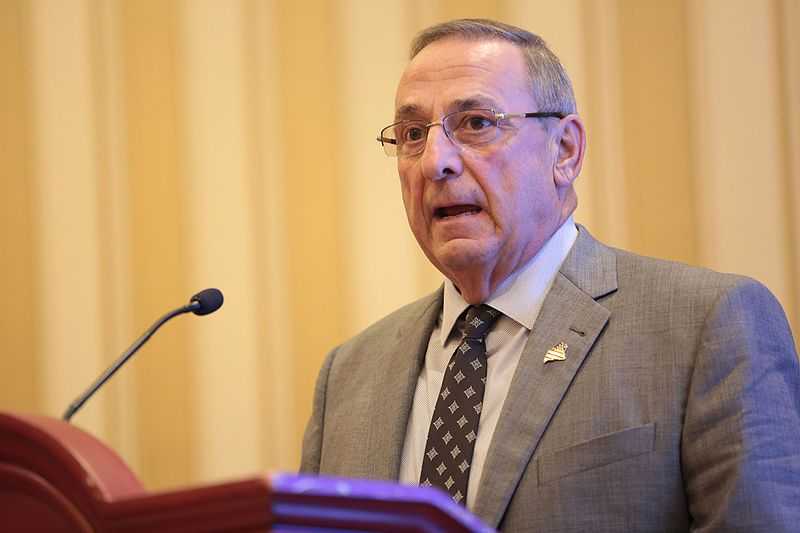Maine Governor Vetoes Bill Banning ‘Conversion Therapy’ for Minors, Citing ‘Bad Policy,’ ‘Threat’ to Religious Liberty

AUGUSTA, Maine — The Republican governor of Maine has vetoed a bill that would have banned what is often referred to as “conversion therapy” for minors who struggle with homosexual temptation, stating that the legislation was “overly broad,” “bad policy” and could be “interpreted as a threat to an individual’s religious beliefs.”
Gov. Paul LePage rejected L.D. 192 on July 6 following passage in both houses of legislature last month. The bill simply stated, “A person may not advertise, offer or administer conversion therapy to individuals under 18 years of age.”
It defined conversion therapy as “any practice or treatment that seeks to change an individual’s sexual orientation or gender identity, including, but not limited to, any effort to change gender expression or to eliminate or reduce sexual or romantic attractions or feelings toward individuals of the same gender.” LePage said that the wording was overbroad.
“[A]s the bill was written—‘any practice or course of treatment’–can call into question a simple conversation. This is so broad that licensed professionals would be prohibited from counseling an individual even at the individual’s own request,” he wrote in his veto statement.
“We should not prohibit professionals from providing their expertise to those who seek it for their own personal questions like, ‘How do I deal with these feelings I am experiencing?’” LePage outlined.
While any efforts to help a minor resist homosexual temptation were outlawed under the bill, it exempted counseling and treatment that would provide acceptance for those who struggle with feelings toward the same sex, or neutrality in such services. It also exempted support for those undergoing a so-called gender transition.
“The Democrats won’t let a 14-year-old start the workday before 7 a.m., but under this bill, a medical professional could not have open conversations with minors considering hormone therapy about the potential and irreversible effects of delaying puberty,” LePage lamented.
He also opined that the bill could be problematic as its regulation of the content of clinical speech may violate the First Amendment, as per the U.S. Supreme Court, and could “be interpreted as a threat to an individual’s religious beliefs.”
LePage said that there are already prohibitions in place in regard to mental or physical abuse in therapy sessions, and there is no evidence that any such practices are taking place in Maine. He stated that the bill would consequently stifle the speech of professional counselors.
“Because their standard of practice already prohibits any therapy amounting to physical or mental abuse, what L.D. 912 attempts to regulate are private, consultative conversations with a client,” he remarked.
Homosexual advocacy groups have decried LePage’s veto, asserting that “he chose petty politics over protecting kids.” Efforts to override the veto in the House failed.
In his book “Holiness,” the late Anglican preacher J.C. Ryle exhorted, “I fear we do not sufficiently realize the extreme subtlety of our soul’s disease. We are too apt to forget that temptation to sin will rarely present itself to us in its true colors, saying, ‘I am your deadly enemy, and I want to ruin you forever in Hell.’ Oh, no. Sin comes to us, like Judas, with a kiss, and like Joab, with an outstretched hand and flattering words. … Let us then watch and pray lest we fall into temptation. We may give wickedness smooth names, but we cannot alter its nature and character in the sight of God. Let us remember St. Paul’s words, ‘Exhort one another daily, lest any be hardened through the deceitfulness of sin.’”
Become a Christian News Network Supporter…
 Dear Reader, has ChristianNews.net been of benefit and a blessing to you? For many years now, the Lord has seen fit to use this small news outlet as a strong influential resource in keeping Christians informed on current events from a Biblical worldview. Despite Facebook’s recent algorithm changes, which has limited our readership, and, as a result, has affected operational revenue, we continue to strive to bring you the news without compromise and to keep Christ in focus. If you have benefited from our news coverage, would you please prayerfully consider becoming a Christian News supporter by clicking here to make a one-time or monthly donation to help keep the truth widely and freely published and distributed? May Christ continue to be exalted through this work!
Dear Reader, has ChristianNews.net been of benefit and a blessing to you? For many years now, the Lord has seen fit to use this small news outlet as a strong influential resource in keeping Christians informed on current events from a Biblical worldview. Despite Facebook’s recent algorithm changes, which has limited our readership, and, as a result, has affected operational revenue, we continue to strive to bring you the news without compromise and to keep Christ in focus. If you have benefited from our news coverage, would you please prayerfully consider becoming a Christian News supporter by clicking here to make a one-time or monthly donation to help keep the truth widely and freely published and distributed? May Christ continue to be exalted through this work!





Comments are closed.